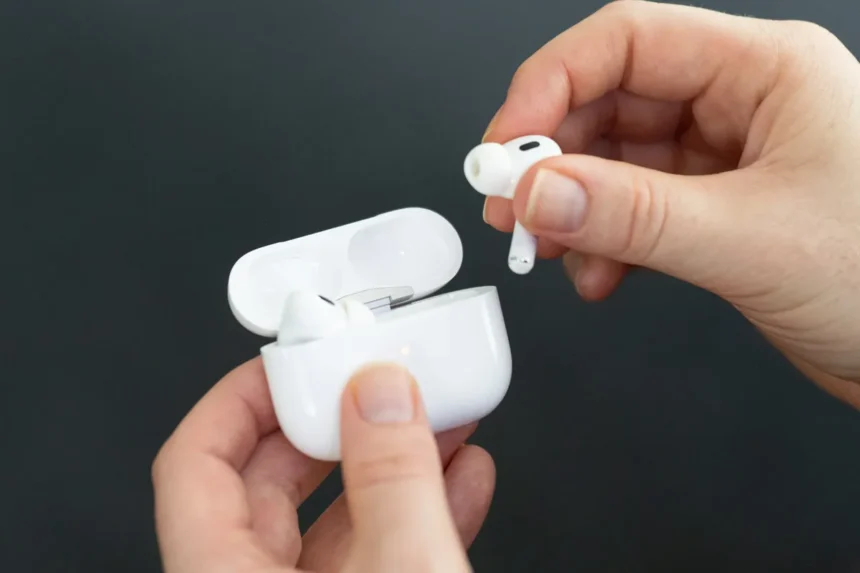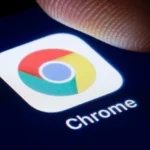Apple continues to redefine what consumer electronics can do, and this time it’s with a new app that could revolutionize hearing health. Announced during the recent “Glowtime” event, Apple’s forthcoming Hearing Test app for the AirPods Pro 2nd generation is poised to make a significant impact in accessibility, personalized audio, and health tech.
This new feature is integrated directly into iOS 18 and shares many similarities with clinical hearing tests. Users are prompted to tap the screen when they hear progressively louder tones across different frequencies, a method that has been used for decades in audiology. But with Apple’s signature design and accessibility in mind, it’s now available in the palm of your hand.
FDA Approval in the Works
While Hearing Test is set to be included in iOS 18, Apple is awaiting FDA approval before launching both this feature and the newly announced Hearing Aid functionality. There’s speculation that approval could come before the general availability of iOS 18 on September 16, though it’s not guaranteed. This delay shows Apple’s commitment to ensuring the feature meets regulatory standards for medical devices, adding an extra layer of reliability.
Who Can Benefit?
The new Hearing Aid feature is specifically designed for users with mild to moderate hearing loss. Interestingly, you don’t need an official diagnosis from the app to enable the feature. Users can upload results from third-party hearing tests, making the process seamless for those who’ve already undergone evaluations. However, the system won’t enable the hearing aid feature for individuals with no hearing loss, or for those with severe to profound loss. In such cases, the app will recommend seeking help from a professional audiologist.
This limitation highlights Apple’s recognition of the complexities surrounding hearing health. While consumer electronics can enhance hearing for mild to moderate loss, they can’t replace specialized medical equipment for more severe conditions. It’s also worth noting that over-the-counter hearing aids only became a recognized category by the FDA in mid-2023, placing this technology at the cutting edge of both audio and healthcare.
Why the AirPods Pro 2nd Generation?
At launch, the hearing aid feature will only be available for the AirPods Pro 2nd generation, and there’s a good reason for that. Two key technologies make these earbuds uniquely suited to the task:
- Passive noise cancelation provided by the Pro’s specialized ear tips.
- The inclusion of the H2 chip, which delivers advanced audio processing.
These features are absent in the first-generation AirPods Pro, limiting the scope of the hearing aid functionality to the latest model for now.
How Does It Work?
Once the feature goes live, accessing it will be straightforward. Users will find it under the settings in iOS once they’ve paired and inserted their AirPods Pro. The test itself is simple and should only take about five minutes to complete. Afterward, the system will create a custom sound profile based on the results. This profile will not only optimize sound for conversations but will also enhance other media, like music and movies, transforming the entire audio experience.
This approach is not dissimilar to what Apple has done in other areas of accessibility, such as the Apple Watch’s AssistiveTouch feature, which laid the groundwork for the now-famous DoubleTap gesture. With customizable sound profiles, Apple is opening the door to a new level of personalization in everyday audio experiences.
Beyond Hearing Loss: Could This Be a New Audio Revolution?
While the hearing aid feature will initially be limited to those with diagnosed hearing loss, it begs the question: Is Apple setting the stage for a broader, user-customizable sound experience? Currently, AirPods users can adjust equalizer settings, but customized sound profiles tailored to individual hearing patterns could be the future of audio technology for everyone.
The idea isn’t far-fetched. Other companies, such as Nura, have explored the realm of personalized sound profiles, although they haven’t managed to turn it into a long-lasting business model. With Apple’s influence and technology ecosystem, it’s easy to imagine how this feature could go mainstream and become a standard part of the Apple audio experience.
The Future of Sound, Shaped by You
As Apple continues to innovate, the integration of hearing health features into everyday devices like the AirPods Pro is an exciting development. With features that adapt to your unique hearing needs, this could be just the beginning of a more personalized and inclusive audio future. While we await further updates, including FDA approval, one thing is clear: Apple is paving the way for a more accessible and tailored audio experience, one tone at a time.
September 16 is just around the corner—stay tuned to see how Apple’s groundbreaking Hearing Test and Hearing Aid feature will reshape the way we hear the world.










